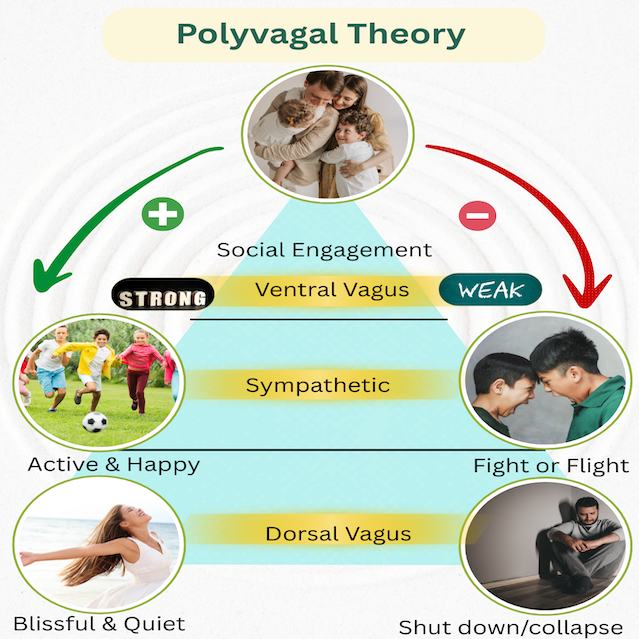
Your autonomic nervous system is one of the three main parts of your nervous system. It controls and coordinates all your organs and almost every cell in your body - automatically, without you having to think about it.
It has two main divisions:
THE CAR ANALOGY - Just like a car, your body needs both an accelerator and brakes to function properly:
WHAT HAPPENS WHEN THE ACCELERATOR GETS STUCK?
If the sympathetic system is overactive, it can overwhelm and eventually weaken the parasympathetic system. Think of driving fast all the time and having to slam the breaks often - eventually, the breaks wear out. The problem in the human body is...you can't replace the breaks. Once your parasympathetic system is damaged, your body stay stuck in overdrive, which increases your risk for serious problems like heart attack.
Sympathovagal Balance (SB) Health depends on the balance between sympathetic and parasympathetic activity.
Key Takeaway: An overactive sympathetic system doesn't just speed things up - it can exhaust your body's ability to slow down and recover.
When Your Nervous System Is Out of Balance
If your "brakes" (parasympathetic system) are too weak and your "accelerator" (sympathetic system) is too strong — often from long-term stress — it can cause serious problems:
• Weaker immune system
• More harmful oxidants → more cell damage
• Higher blood pressure
• Clogged arteries (atherosclerosis)
• Ongoing inflammation
• Faster development of diabetes, heart disease, kidney disease, or dementia
You may also feel pain and stress more intensely:
• Small pain feels big
• Mild stress cause big anxiety
• Symptoms can look like fibromyalgia or PTSD
How It Damages the Body — Your "accelerator" and "brakes" work together.
• If the accelerator works too much, it wears out it's brakes → higher risk of serious illness.
• If the brakes are overused, you press the accelerator harder — like riding the brakes in the car, which overworks the engine.
Why Stress Control is Key — Stress keeps your body stuck in overdrive. Managing stress can:
• Protect your "brakes"
• Lower the risk of heart attack and chronic illness
• Help your body recover and stay healthy longer
Keeping Your Nervous System Calm
When your body's "go" system (sympathetic) is always switched on, gently daily habits can help bring it back to balance. Good options include:
• Meditation: Regular practice of these techniques can help regulate the nervous system and promote a sense of calm.
• Yoga: Certain yoga poses and breathing techniques can stimulate the parasympathetic nervous system.
• Tai Chi: Tai chi requires concentration on the movements and breathing, which helps to quiet the mind and reduce mental clutter. This focused attention allows individuals to be present in the moment, diverting their focus from stressful thoughts.
• Walking or light exercise: Activities like walking in nature, dancing, or light stretching can help release tension and promote relaxation.
• Humming, singing or gargling: These activities stimulates the vagus nerve through vocal cord vibration, which is a key part of the parasympathetic nervous system.
• Splashing clod water on your face: While your body adjusts to the cold, sympathetic activity declines, while parasympathetic activity increases.
You don't need intense workout. Think "low and slow" — gentle movement that slowly raise your heart rate for about 40 minutes.
This helps:
— Calm your body
— Lower stress
— Keep your "go" and "stop" systems working together
Start easy, then build up as you feel stronger and more balanced.